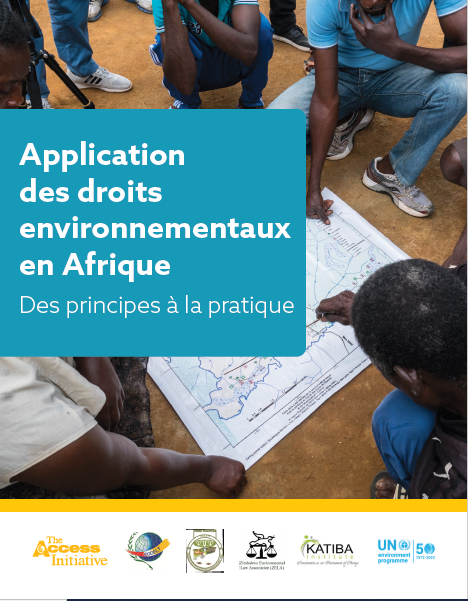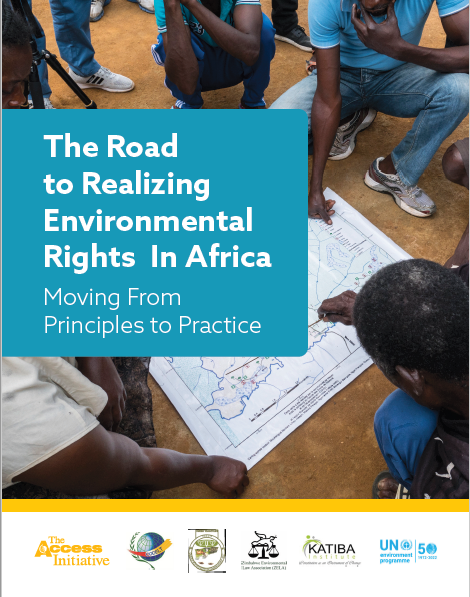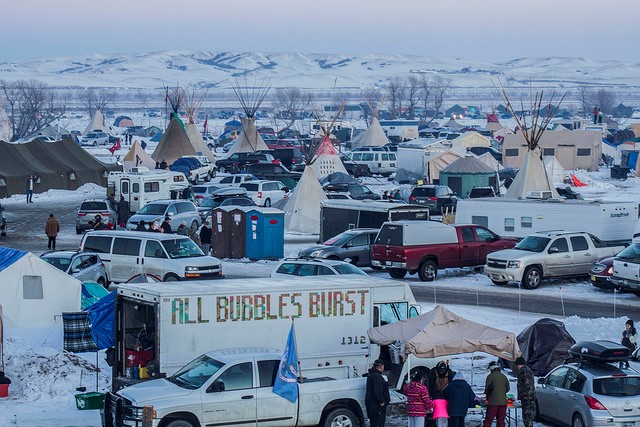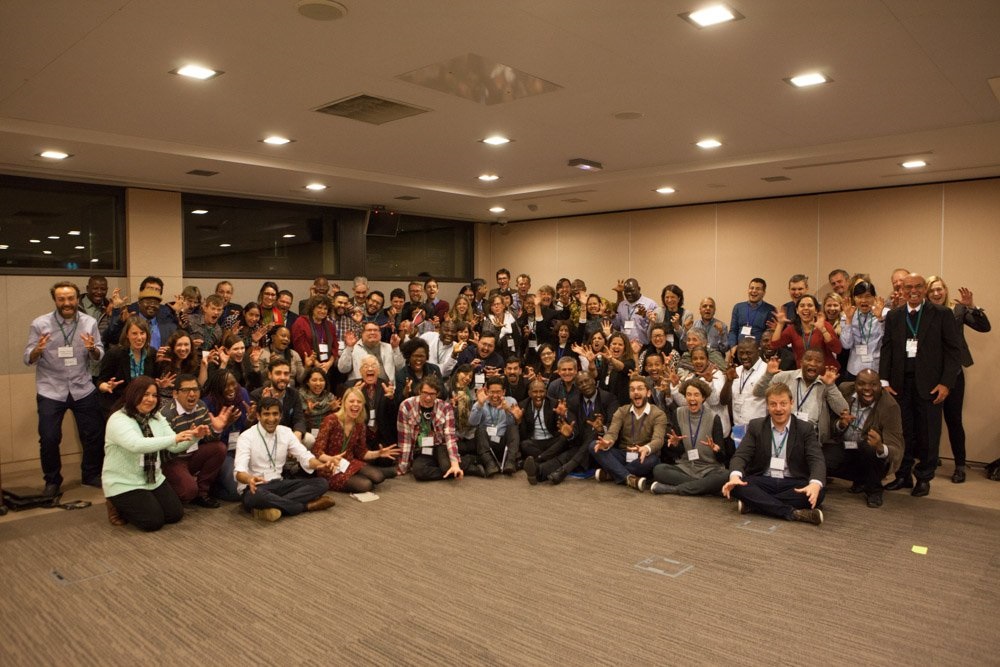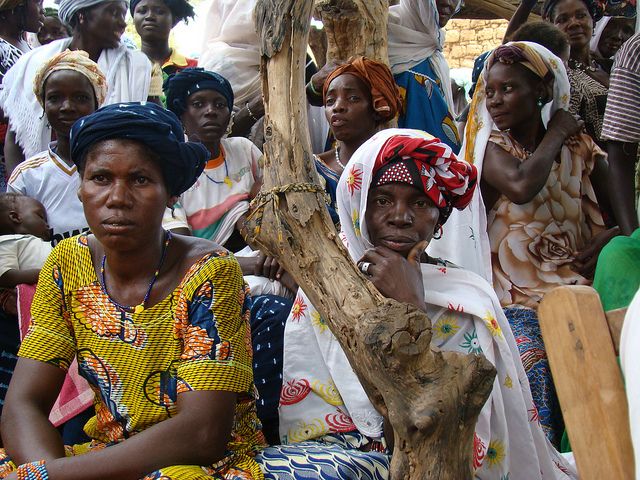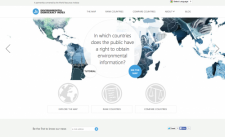Last week the Access Initiative hosted its sixth Global Gathering, Open Government for Climate Action, on 5 December – 6 December, 2016, in Paris, as part of the lead up to the Open Government Partnership (OGP) Paris Summit. The Gathering brought together over 95 people from climate, open data, and open government civil society communities to expand new spaces for action and build momentum around implementation of the Paris Agreement on Climate Change.
TAI asked a number of the participants how they can use open government to foster strong climate action in their work moving forward. This is what they said:
Carole Excell, Director, The Access Initiative
You have heard it said before: climate change remains one of the greatest challenges of our times. It affects all future generations. The Paris Agreement brings climate policies down to the national and local sector level in the “real world” where citizens can understand such as decisions around coal power plants, transportation, coastal structures to deal with sea level rise, land restoration, pipelines and adaptation requirements to deal with floods. However in many countries citizens do not a voice or seat at the table when these decisions are being made. To achieve accountability, people need rights that go to the heart of accountability. This requires strong transparency rules to facilitate understanding of power dynamics and culpability that people can participate in decision-making processes in a timely fashion, and that forums exist to address environmental justice demands. Good climate governance requires open and accountable government actions. The Global Gathering built communities of actors who often work in silos, together for the first time to springboard greater and more effective climate action.
Augustine B NJAMNSHI Executive Secretary Bioresources Development and Conservation Programme Cameroon & National Coordinator The Access Initiative Cameroon
Although as humans we all have common responsibility to take action to address climate change, some are more responsible than others. This is not only based on the fact that the current climate crises has been principally caused by the past and present production and consumption systems practiced by the global North, but also that they have benefited from it and have the capacity to withstand the shocks of climate change. They therefore owe greater responsibility not only to do more to stop the climate crises, but also a duty to help those who are suffering more from the effects of climate change in the global South.
Now the talking is over, and we need action. Equity and justice have to be translated into national action in every aspect of the climate regime. The farmer on the ground has to see equity and justice in every climate decision made by the government at all levels. There is no need to fight for climate justice at the international level, and then turn to deny the local population what has been fought for and demanded from the global north. After all, it is said he who goes for equity must go with clean hands! The global gathering was an opportunity for us, climate justice and governance advocates to pave the way on how to take the struggle at the national and local levels.
Eco Matser, Hivos, Global Coordinator Climate, Energy and Development
Hivos has been working with civil society organizations in countries such as Malawi, Kenya, Tanzania, Zimbabwe, Indonesia, Nicaragua and Costa Rica on ensuring that governments follow up on their commitments towards ending energy poverty as detailed in the Sustainable Development Goals and the Paris Agreement. Our main focus is on ensuring that decentralized renewable energy – a key component in establishing universal energy access – has the right policy and regulatory environment as well as access to finances from international and domestic climate finance. In many countries CSOs will keep a close eye on national energy budgets and are advocating for policy changes while in others such as in the Indonesian island of Sumba Hivos works in a multistakeholder approach with communities, governments and businesses to ensure the whole island gets powered by renewable energy.
During the Global Gathering Hivos explored the relevance of OGP for tracking international and national climate finance streams (both from donors and from national sources) as well as develop concrete ideas with the transparency and climate movement to increase transparency of climate finance and how to shift investments to be more focused on creating real energy access for the poor.
Renato Morgado, Public Policy Coordinator, Imaflora
Imaflora is one of the organizations responsible for the Brazilian Greenhouse Gas Emission Estimate System (SEEG) promoted by Climate Observatory, a coalition of 35 NGOs. Such initiative provides transparency to Brazilian GHG emissions, disseminating calculation method, database used on national inventory and results per sector, which allows a better comprehension and incidence on Brazilian public policies and climate compromises. We are also developing a web platform for visualization and monitoring of Amazonian timber flows, from harvest to consumption. The platform will allow better transparency in wood sector as well as to improve the combat to illegal logging and Amazon deforestation, main factor to GHG emissions in Brazil.
The Global Gathering helped enhance our performance, enabling an interaction with community of open government and knowledge of transparency, participation, accountability and technology initiatives and tools, which can be applied to the Brazilian context.
Leah Good, Programme Coordinator (Asia Pacific), Transparency International
Transparency International works with our partners around the world to make sure that actions to address and adapt to climate change are free from corruption. TI partners are tracking climate finance to figure out how much money is flowing and make sure it is spent properly. In Bangladesh and the Maldives, two of the most climate vulnerable countries in the world, our partners are working with beneficiaries of adaptation projects to assess their effectiveness. When problems are identified, our teams ensure local voices are heard. In forest-rich countries in Africa and South America, we are promoting governance reforms that will support successful REDD+ schemes to protect forests. Where investments in renewable energy are huge and growing, we are ensuring civil society plays a role in monitoring public contracts.
At the OGP Summit and beyond, we want to see governments commit to address the climate crisis transparently and openly. By bringing together such a broad range of actors and expertise, the Global Gathering helped TI partners forge new alliances, learn from other approaches, and build even more momentum towards a cleaner, greener future.
